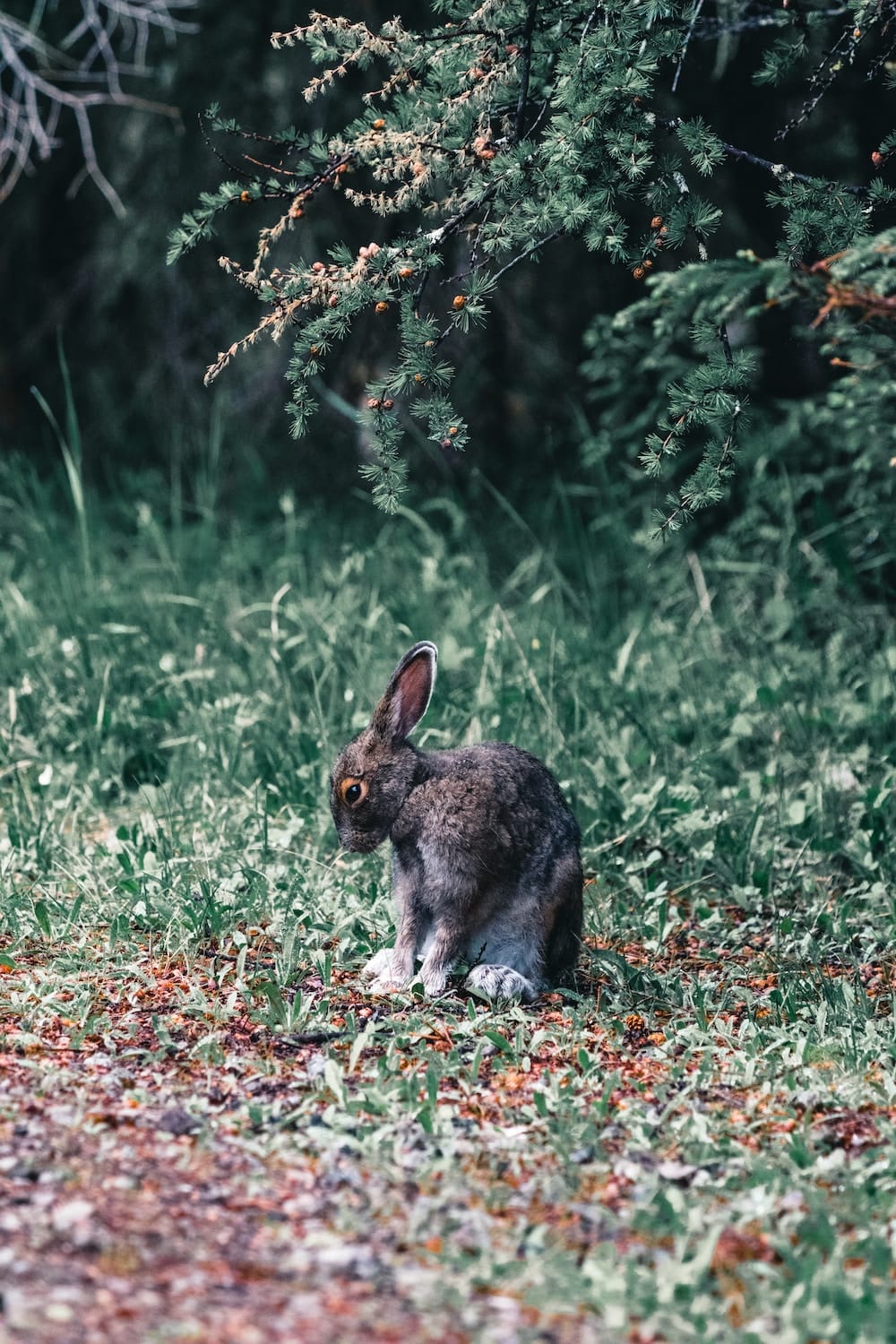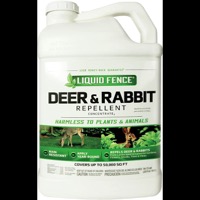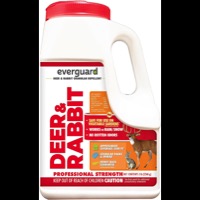How to Make Homemade Rabbit Repellents
DIY Tips

By Jess Simmonds, Expert Reviewer for Repellent Guide
published: Aug 09, 2023 | updated: Aug 09, 2023
With their twitching noses and fluffy tails, rabbits may look cute and harmless. But when they start munching on your carefully nurtured plants, that adorable image can quickly change. One of the most effective and cost-friendly ways to deter these critters is by using homemade rabbit repellents. Not only are these repellents easy to make, but they're also safe for your other garden visitors, such as pets and beneficial insects. Let's delve into some DIY tips for making your own rabbit repellents.
1. Understanding the Basics
Rabbit repellents operate primarily by exploiting the rabbit's acute sense of smell. These animals, much like other creatures in the wild, rely heavily on their olfactory senses to navigate their environment and distinguish safe zones from potentially hazardous areas. They are especially sensitive to smells that are strong, unfamiliar, or indicative of predator presence, and tend to avoid such odors.

Homemade repellents often utilize ingredients that emit strong or disagreeable smells to rabbits, hence deterring them from visiting or dwelling in areas where these scents are prominent. However, it's important to note that the same odor may not equally affect all rabbits. Local rabbit populations may have adapted to certain smells, especially if there's a lack of alternative food sources. Therefore, you may need to experiment with different repellents or a combination thereof to see which works best in your specific situation.
Moreover, while these repellents are designed to keep rabbits at bay, they are mostly non-toxic and safe for other animals. They are also eco-friendly, often utilizing natural and readily available ingredients. This ensures that while you're preventing damage to your garden, you're also not introducing harmful substances to the environment.
Also, keep in mind the necessity of reapplication. Rain, wind, and other weather conditions can weaken or wash away the repellents over time. Regular reapplication ensures that the odors remain strong enough to deter the rabbits. The frequency of reapplication can vary based on weather patterns, but a good rule of thumb is to reapply at least once every two weeks.
In conclusion, understanding the basics of how rabbit repellents work will not only help you use them more effectively but also appreciate the balance they strike between preserving your garden and maintaining a safe and natural environment for all.
2. Spicy Repellent Spray
As mentioned before, rabbits have sensitive noses and are known to be put off by the strong smell of spices. These aromas, while pleasant or neutral to humans, are overwhelming for the olfactory senses of rabbits, effectively making your garden less attractive to them.
In order to make a spicy repellent spray, you will need the following ingredients:
- 2 tablespoons of crushed red pepper
- 2 tablespoons of garlic powder
- A squirt of dish soap
- A gallon of water.
The garlic powder and crushed red pepper provide the strong, offensive odor that repels rabbits. The dish soap acts as a sticking agent, helping the mixture adhere to the leaves and stems of your plants, making the repellent more enduring.
To prepare the mixture, combine the crushed red pepper and garlic powder with the water, stirring until they are well incorporated. Then, add a squirt of dish soap to the mixture and stir again.
Once prepared, the repellent can be applied using a garden sprayer or a spray bottle. Spray it around your garden, with a focus on the plants that rabbits seem to favor most. However, be cautious to avoid over-saturating your plants as this can lead to other issues such as fungal growth.
Remember, the effectiveness of this spicy repellent spray relies on its strong odor, which can be washed away by rain or fade over time due to weather and air exposure. Therefore, it's crucial to reapply this spray after a rainstorm, or at least every two weeks to maintain its effectiveness.
This homemade spicy repellent spray is a cost-effective and environmentally friendly solution to your rabbit problem. Not only does it utilize readily available ingredients, but it also ensures the safety of other beneficial creatures visiting your garden while effectively deterring rabbits.
3. Vinegar Spray
Vinegar is well-known for its pungent smell, which most humans find unpleasant when it's concentrated. To a rabbit's keen nose, this scent is even more repulsive, making vinegar an excellent ingredient for a homemade repellent spray.
To create a vinegar spray, you'll need:
- Equal parts water and white vinegar.
Mixing water and vinegar in equal proportions helps to dilute the vinegar's acidity while maintaining its strong scent. The dilution is important as it prevents the vinegar from potentially damaging your plants or altering the soil's pH level drastically.
To prepare the spray, simply combine the water and vinegar in a spray bottle. Shake well to ensure they're thoroughly mixed.
To use the spray, target the plants that rabbits have been nibbling on. These are likely their preferred foods in your garden, and treating these plants will provide the most immediate deterrent. Spray the mixture around the base of the plants and on the leaves. Be sure to test the spray on a small area first to ensure that it doesn't damage the plants.
Just like the spicy repellent spray, vinegar-based repellents also need reapplication to maintain their effectiveness. Rain can wash the vinegar away, and over time, its strong smell can naturally dissipate. Regularly reapplying every couple of weeks, or after heavy rain, will ensure that the scent remains strong enough to deter rabbits.
This simple vinegar spray uses a common household item, is quick to prepare, and easy to use, offering a cost-effective solution to your rabbit woes. But always remember to be considerate of the other wildlife and domestic animals in your vicinity. While vinegar is generally safe, it might irritate some animals if they come into direct contact with it, so use it judiciously.
4. Egg-Based Repellent
Eggs are an excellent ingredient for homemade rabbit repellents due to their strong smell when they begin to decompose. They mimic the scent of decay, signaling to rabbits that the area is not fresh and potentially dangerous, causing them to avoid it.
Here's what you'll need to prepare an egg-based repellent:
- 1 or 2 eggs
- A gallon of water
- A spray bottle or garden sprayer
To prepare the solution, start by beating the eggs in a bowl. You don't need to whip them to a froth; a light whisking to break up the yolks will suffice. Next, mix the beaten eggs with the water and stir well.
Pour the mixture into your spray bottle or garden sprayer and apply it around your garden, focusing on the plants that rabbits favor. As with the other repellents, it's important to reapply this mixture regularly to maintain its effectiveness.
One important thing to remember with an egg-based repellent is that while the smell is offensive to rabbits, it can also be unpleasant for people. Be mindful of this when applying the mixture, and try to avoid areas where people frequently gather or pass by.
This egg-based repellent is not only effective but also uses ingredients that you likely already have in your kitchen. It's a testament to the fact that creating a deterrent for pests doesn't always have to involve a trip to the store or the use of harsh chemicals.
Remember, the goal is to discourage rabbits from your garden, not to harm them. All these homemade repellents are safe and humane, ensuring that while you're protecting your garden, you're also preserving the local wildlife.
5. Soap Bars
Soap bars are another non-toxic and humane way to deter rabbits from your garden. The strong smell of soap can be off-putting to rabbits, effectively keeping them away from your precious plants. This method is especially useful as it doesn't involve any mixing or application of liquid solutions, making it easy to use and maintain.
For this method, you'll need:
- Strongly scented soap bars
When choosing the soap bars, it's best to go for the ones with a strong fragrance. Deodorant soaps are an excellent choice as they usually have a robust scent that can last for a considerable time.
To use soap bars as a rabbit deterrent, unwrap the bars and place them around your garden. You can put them on the ground near the plants that rabbits have been nibbling on, or hang them from trees or stakes at rabbit height.
One soap bar can cover a small to medium-sized area. If your garden is large, you might need to use several bars. Replace the bars once the scent fades.
The soap bars method is environmentally friendly, as it doesn't involve spraying any substances on the plants or soil. Plus, when it rains, the soap will gradually dissolve and mix into the soil, which can actually help to deter underground pests as well.
While this method is simple and easy to use, it's important to remember that its effectiveness might vary depending on local conditions, such as rain frequency and the level of rabbit infestation. As with all repellent methods, regular monitoring and adjustment are key to achieving the best results.
By using these simple homemade rabbit repellents, you're not only protecting your garden from rabbits in a non-toxic and humane way, but also contributing to the overall health of your local ecosystem. After all, gardening is about coexisting with nature and all its creatures, and these methods help you do just that.
6. Using Commercially Available Natural Repellents
Sometimes, despite our best efforts, homemade solutions might not provide the level of deterrence required, or they could be too time-consuming to maintain. In such cases, it's worth considering commercially available natural rabbit repellents.
There are many products on the market that are made from natural ingredients and are safe for the environment, your plants, and other wildlife. These products come in different forms such as sprays, granules, or even electronic devices that emit sounds or vibrations that are unpleasant to rabbits.
Here are a few options you might consider:
a. Natural Rabbit Repellent Sprays: These products usually contain strong-smelling substances like putrescent egg solids, garlic, or capsaicin that deter rabbits. They are ready-to-use and typically last longer than homemade solutions.
b. Repellent Granules: These are made with ingredients like dried blood, garlic, or capsaicin. You simply scatter them around your garden, particularly near plants that rabbits favor. They are weather-resistant and usually don't need frequent reapplication.
c. Ultrasonic Devices: These use sound waves or vibrations that are uncomfortable for rabbits, effectively keeping them at bay. These are a good option if you prefer not to use any substances in your garden.
When choosing a commercial product, always read the labels carefully. Ensure it's safe for your specific situation, especially if you have children, pets, or other wildlife visiting your garden.
Remember, the goal is not to harm the rabbits but to encourage them to go elsewhere. By combining these commercial products with your homemade efforts, you can effectively and humanely protect your garden from rabbits.
7. Conclusion: Balance is Key
Balancing the needs of your garden with the natural behavior of rabbits can be a challenge, but it's certainly possible. As with most things in life, balance is key when it comes to deterring rabbits. It's crucial to remember that rabbits are an important part of the ecosystem. They're not just "pests"; they play a vital role in the food chain and contribute to the health of the environment.
The purpose of using homemade repellents isn't to remove or harm these creatures, but to deter them from damaging your plants while co-existing in the same space. All the methods we've discussed, from creating spicy or vinegar-based sprays, using egg-based solutions or soap bars, to exploring commercially available natural repellents are designed with this principle in mind.
The best method for you will depend on your specific situation - the size of your garden, the level of rabbit activity, your available time and resources, and your personal preferences. Don't be discouraged if your first attempt doesn't yield the desired results. It may take some time and experimentation to find what works best in your case.
Remember, the goal isn't to create a fortress that keeps all wildlife out but to establish a garden where you and nature can thrive together. Patience, persistence, and respect for nature are your best tools in this endeavor.
Happy gardening!
-
Ultrasound
-
Concentrate
-
Granules




